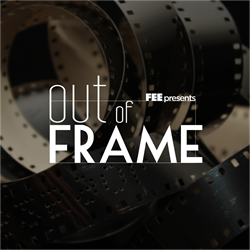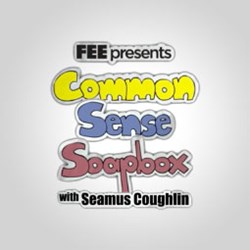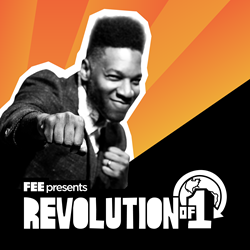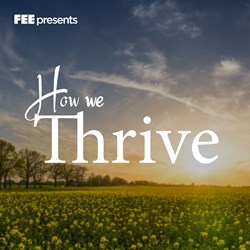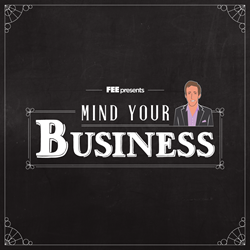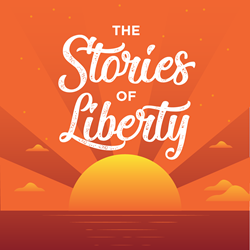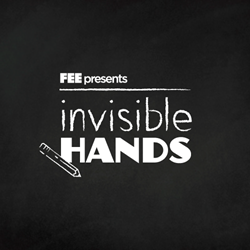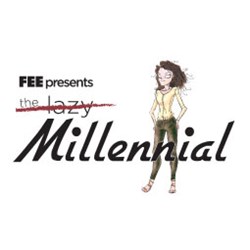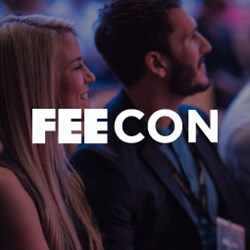MOVIE CLIPS & B-ROLL
SEAN
What do Avengers: Endgame, Friends, The Orville, Lion King, and even a previous episode of this series all have in common?
(dramatic beat)
This guy.
We see a great promo shot of Jon Favreau.
SEAN
Jon Favreau.
B-ROLL: Out of Frame on Elf.
SEAN
You might recall me saying that Favreau was one of my all-time favorite directors back when we talked about his charming holiday movie, "Elf".
B-ROLL: Iron Man and Avengers: Endgame
SEAN
And although he doesn't get as much credit as he probably deserves from Marvel fans, the MCU really would not exist without him.
Apart from the humor, tone, and style he created with Iron Man, he was also the guy who cast Robert Downey, Jr. in the role of Tony Stark.
And as an actor, he's responsible for one of the best and most emotional moments in Avengers: Endgame.
B-ROLL: Slideshow of posters for Favreau's other films like Swingers, Made, Zathura, etc.
SEAN
But Favreau has also made some incredible films that aren't part of the MCU and one of the things I love most about doing this series is introducing people to ideas and art that maybe they don't know as much about.
So, today, instead of breaking down another Marvel movie, I want to talk about Jon Favreau's hilariously relevant and heartwarming independent film, "Chef".
OOF Titles
SEAN
Welcome to Out of Frame.
SEAN
Before we get started, yes there will be spoilers.
But to be honest, nothing about "Chef" revolves around major plot twists or hidden surprises.
The beauty of the film is in the character journey; the fantastic performances by Jon Favreau, Emjay Anthony, Oliver Platt, John Leguizamo, Scarlett Johansson, Sofia Vergara, Dustin Hoffman, and a hysterical cameo from Robert Downey, Jr.; and just in the film-making itself.
It's pretty much impossible for me to spoil any of that, so don't worry.
For those who haven't seen it, "Chef" is about Carl Casper, a high-end head chef working at a one of the top restaurants in LA.
Once a rising star in the culinary world, now he's sort of lost his mojo working for an owner who won't allow him to have creative control over his own kitchen.
And after a devastating review, Carl gets into a Twitter war with a prominent food critic and eventually has an incredibly public meltdown.
CUT TO:
MELTDOWN SCENE
CARL CASPER
"You're not getting to me! I'm not needy!"
B-ROLL
SEAN
Carl loses his job and has to figure out how to get his career and his passion for cooking back on track.
But at the same time, he's also been neglecting his 10-year-old son, Percy.
So Carl's ex-wife Inez suggests that they all go to Miami together to spend some time with family and maybe see about an opportunity for Carl to start a food truck business.
CLIP: Inez tells Carl to start a food truck business.
INEZ
"You'll never be happy working for someone else..."
B-ROLL
SEAN
But... The opportunity to get the truck comes from Inez' other ex-husband, Marvin.
CLIP: RDJ cameo
RDJ
"I like this humility, it's good.
(beat)
Truth be told, the food truck's a good idea."
B-ROLL
SEAN
Of course, the truck itself is a disaster, but with the help of Carl's son and his sous chef Martin, they get it cleaned up and start serving Cuban sandwiches on South Beach.
As they drive the truck across the country back to Los Angeles together, Carl reconnects with Percy and his love of cooking, while his new business venture starts blowing up. Thanks to a delicious product and Percy's social media marketing skills, they end up with lines around the block at every city they stop in, and by the time they get back to LA, El Jefe's Cubanos is the hottest thing in town.
CLIP: Oliver Platt
CRITIC
"Muy delicioso"
B-ROLL
SEAN
This movie is awesome for so many reasons.
It's funny and warm, and its themes of passion, dedication, creativity, and family are all really lovely.
But the reason I wanted to talk about Chef is because it's also a case study in entrepreneurship, value creation, and the importance of embracing freedom as an actual life philosophy both at the societal level and as an individual.
Let me explain.
The concept of freedom as a life philosophy is about seeing the beauty in an open and universally free society and dealing with other people on a voluntary basis, through cooperation or mutually beneficial exchange.
It's about employing an entrepreneurial mindset, finding opportunities for personal success in creating value for other people in all aspects of your life.
It's a lens through which to see and understand the world that values individual people for their unique talents, ideas, and perspectives and which respects their right to make their own decisions just as we all want our rights to be respected by others.
In the immortal words of FEE's founder, Leonard Read:
"My thesis, in simplest terms, is: Let anyone do anything he pleases, so long as it is peaceful."
I would argue that adopting this mindset not only makes for a better world, which we'll talk about later, it's also a pathway to greater success in life for individual people.
SEAN
We can see this play out pretty clearly in "Chef".
When we're first introduced to Chef Carl Casper, he's already hard at work, creating what looks like a stunning culinary masterpiece.
When the rest of the kitchen staff comes in, they're immediately inspired by Carl's passion, and start getting ready to dazzle the food critic that they know will be dining at their restaurant that evening.
But then, Riva, the owner of the restaurant shows up.
He quickly notes that one of Carl's previous culinary experiments didn't go over well with customers, and forces Carl to just do what he's always done before.
CLIP: Riva tells Carl what to do.
RIVA
"I've had chefs in here before you, and I'll have chefs after you..."
B-ROll
SEAN
As a manager, Riva doesn't allow Carl the freedom he needs to be innovative or entrepreneurial inside his role as head chef.
Carl's ideas and expertise aren't really respected, and even though Riva thinks he has a good reason for this kind of micromanagement, preventing Carl from getting creative with the menu is ultimately what earns his restaurant a 2-star review and pushes Carl into a meltdown.
Riva doesn't really understand that it's Carl's unique perspective and talent that makes him valuable.
And as devastating as it is for Carl to lose his job, without Riva's restrictions, he can start cooking food he's actually excited about again and reconnect with his own artistic identity.
But of course he still needs to earn a living to support his family.
CLIP: Carl talks to Molly about finding a way earn a living and cook creatively.
CARL CASPER
"Why do I have to pick...?"
B-ROLL
SEAN
The good news is that Carl doesn't have to choose between personal fulfillment and making a good living.
But... This is where I'm going to have to pause the story for a moment and talk about how market economies actually work.
We first see a map showing countries color-coded by economic freedom. Then we see charts comparing economic freedom to indices on per capita income, corruption, business formation, and innovation.
SEAN
Looking at the big picture, we see huge differences between societies that do a decent job of upholding private property rights and which allow everyone to offer their unique skills, products, and services to prospective customers without a ton of restrictions or bureaucratic hurdles... and the ones that don't.
More economically free societies are not just vastly wealthier overall, they're also far less corrupt and way more entrepreneurial and innovative.
People who live in those societies have more and better opportunities than people in other parts of the world where they don't have as much freedom.
Honestly, it's pretty easy to understand why.
Fewer barriers for people trying to participate in a given market allows more businesses to form, creating more types of goods and services in an environment where there's more competition.
B-ROLL: Chef ending scene with El Jefe food truck in the middle of other food trucks.
SEAN
All that competition means we all have to work harder to make better quality stuff at more affordable prices in order to attract customers.
Shots of people lining up to get Chef Casper's cubanos.
SEAN
More importantly, since potential customers are actually free to choose what they want to buy, or not, we end up with a ton of meaningful information about what people actually value.
This is key.
You'll find that politicians and even some economists often talk about national economies as if they're machines.
Pull this lever, turn that crank, push this button, and "the economy" will grow or contract the same way a car would accelerate or slow down.
But that's not really how any of this works.
"The Economy" is just a label we use to describe the result of millions, or even billions of individual choices made by people all over the world about production, consumption, and trade.
These choices are based on all kinds of highly specific information that can only be known and understood by the people making them.
Stuff like the comparative availability or scarcity of different products in a given town or region, local cultural norms, personal preferences and values, or even just moment-to-moment desires.
The one thing that almost all of these choices have in common is that they reflect each individual's attempt to use the knowledge and resources they have at their disposal to improve their own lives.
Entrepreneurs play a pivotal role in all of this.
Their task is to come up with new ideas that they believe other people are going to value. Usually stuff that solves a problem or improves on an existing solution.
You don't even have to run your own company to think like an entrepreneur.
B-ROLL: Back to Chef.
SEAN
Look at Chef Casper.
He's constantly coming up with new recipes and getting feedback on them from his friends, family, and colleagues. He's making the pretty reasonable assumption that if they all love what he's cooking, his customers will probably love it too.
This is the essence of entrepreneurial thinking.
Carl's not inventing the concept of "food", but he is trying to improve on it and offer new variations that people like more than whatever other alternatives already exist.
He's trying to make his customers' lives better by doing what he does best.
But the only way he'll truly know if he's actually creating value or just wasting his time is by observing what economists call "price signals".
As long as nobody is forcing anybody to do anything, we can see when people really want a product or service by how much they're willing to pay for it.
Rising prices indicate that the demand is greater than the available supply and vice versa.
Entrepreneurs that create goods & services people genuinely like without wasting a ton of resources will find more customers and earn a profit.
The ones that produce stuff no one wants or who can't figure out how to make their products efficiently must either learn to do a better job or eventually go out of business.
The interplay between open competition, free choice for producers and consumers, and the information revealed by prices, profits and losses is really the magic of the whole thing.
And the people that benefit the most are... well... all of us.
As consumers, we're getting more and better quality options for the things we value at lower costs. And that's basically how we end up with higher standards of living over time.
This might all seem really abstract, but understanding how the market process works can be incredibly useful to anyone who's looking to improve their personal economic situation.
Like Carl.
CLIP: Carl talks to the PR agent some more (00:42:44)
CARL CASPER
"I don't think you understand what's going on here, I'm a real Chef, with--"
PR AGENT
"You said you needed money, right?"
CARL CASPER
"A job! A job, not money! I need a job, like I had."
B-ROLL
SEAN
But ultimately, Carl doesn't actually get a new job working for someone else.
Instead, he creates a job for himself by finally taking an entrepreneurial risk that Inez had encouraged him to take for a long time.
El Jefe's Cubanos is basically a start-up business with fairly low overhead and a small initial capital expense.
Carl gets the used, beat up truck cheap and then puts a lot of his own money and sweat-equity into making it a functional mobile kitchen.
The relationships he's built over the years provide him with a few favors and a talented assistant to help him run the new business.
And then they all go to work producing a product they believe their target customers will enjoy and do their absolute best to make that product better than anyone else.
They even experiment with local ingredients and come up with unique recipes to cater to new customers in different cities as they travel across the country.
Meanwhile, Percy uses his mastery of social media to get the word out about the business and let potential customers know where they're going to be.
It's just such a perfect encapsulation of the entrepreneurial spirit.
But none of this would be possible if the permitting process was so strict that Carl couldn't legally run the food truck, or if the cities he visited didn't allow trucks to operate at all.
That was a real problem back when food trucks first started to get popular in the United States.
CLIP: Russell Peters wants to see Carl's permit and everybody boos.
COP
"You're good to sell, just not to sell here."
CARL CASPER
"So what, like a half mile down the road?"
COP
"Yeah, just not on South Beach."
B-Roll
SEAN
Economic freedom is a necessary condition not just for El Jefe's Cubanos to be a successful business and for their customers to be able to enjoy delicious sandwiches, but also for Chef Carl Casper to be fulfilled as a creative individual.
This stuff is all connected.
If Carl had someone mandating what he had to cook or if his customers were legally prevented from buying his products, nobody would be better off and the world would be poorer for it.
We see some references to socialism in South America, Asia, and Africa on screen.
SEAN
It's no coincidence that the countries that do place heavy restrictions on their people's economic activity also see the highest levels of poverty on the planet.
We see shots from Made in Mekhe.
SEAN
I recently produced an award-winning documentary on this very subject called Made in Mékhé.
Check the link in the description to watch that film.
But this isn't just about the big picture.
It's also really personal.
I talk to people all the time who are looking for better opportunities and a pathway to a more successful career, and the one piece of advice I give again and again is that it always comes back to value creation.
In a free market economy, you'll always have the opportunity to succeed if you can figure out what other people want and be the one to provide it for them.
And if you can do that while also doing work that you're passionate about, you've pretty much won at life.
CLIP: Carl tells Percy about his passion for food.
CARL CASPER
"Everything that's good that's ever happened to me has come from that."
B-ROLL of Carl cooking and making people happy.
SEAN
In "Chef", Carl rediscovers the intersection between his passion and the value he can create for other people, and in doing so turns a beat-up truck and some sandwiches into a thriving business.
He regains his creative freedom and uses it to make food that his customers want and that he's actually proud to cook. In the process he improves his own life, along with the lives of his family, friends, and customers all at the same time.
This is the beauty of entrepreneurship and understanding freedom as a life philosophy.
Now... Who's hungry?
SEAN
Hey everybody, thanks for watching this episode of Out of Frame. If you want to know more about the ideas I talked about today, check out the links in the description or leave a comment and I'll try to get back to you as soon as I can.
Also, let me know if you'd be interested in content like this more than once a month. We're thinking about ways to expand the series, and I'd love to hear your thoughts.
And please, don't forget to check out FEE.org/shows for all the other content we're producing each week and go ahead and like, subscribe, and ring that bell icon for @feeonline on YouTube, Facebook, Twitter, and Instagram.
See you next time.
About this show
Video essays that explore the intersection of art, culture, and big ideas written & produced by FEE's Director of Media, Sean W. Malone.
